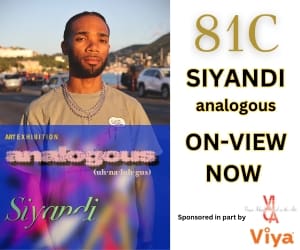
A jury of Virgin Islanders heard opening arguments Thursday in the trial of Darin Richardson, the former V.I. Housing Finance Authority executive who, over the last year, has been charged with making a material false statement to a federal investigator, criminal conflict of interest, bank fraud, money laundering and making false statements on a loan application.
“Greed and misconduct,” Assistant U.S. Attorney Cherrisse Woods said, are two words that come to mind when people think about high-ranking government employees who use their positions to enrich themselves.
“The defendant in this case, Darin Richardson, is no different,” she told jurors.
Richardson’s attorney, Darren John-Baptiste, naturally took a different view. If what the government argued was completely true, he said, his client would have to be the “stupidest” criminal who ever lived. That’s because the first two charges against Richardson stemmed from a voluntary interview he gave to a special agent from the U.S. Housing and Urban Development Department’s Inspector General’s Office in February 2023. John-Baptiste said the opposite was true.
The evidence “will show that the charging document is replete with falsehoods and replete with misleading statements,” he said.
Richardson was indicted on the first two charges in June alongside D&S Trucking owners Davidson Charlemagne, who is also the former maintenance director for the V.I. Education Department, and Sasha Charlemagne. Prosecutors initially accused the trio of engaging in a scheme to reap millions in federal dollars while mismanaging lumber earmarked for disaster recovery projects.
U.S. District Judge Wilma Lewis agreed to sever Richardson’s case from that of the Charlemagnes in September, and in December prosecutors added the bank fraud, money laundering and fraudulent loan application charges against Richardson in a superseding indictment.
The timeline of alleged criminal activity Woods presented Thursday morning hewed closely to the charging document. According to prosecutors, Richardson used his position on a VIHFA bid evaluation committee to improperly award a $2.9 million warehouse management contract to Island Services Group — or ISG — who subcontracted the work to D&S Trucking. That contract was amended at least four times and increased to more than $4.3 million in less than a year, even though little actual work was being done.
At some point, Woods told the jury, Richardson approached ISG managing partner Morris Anselmi about entering into a business relationship. Richardson received a $107,000 wire transfer from Island Services Group Florida — which Woods said is an affiliate of ISG — in February 2022. On Feb. 14 of that year, he notified then-VIHFA Executive Director Daryl Griffith of a conflict of interest and recused himself from all matters related to ISG.
“But what the evidence in this case will show,” Woods said, is that Richardson did not.
Over the course of the day, prosecutors began laying out their case in a trial that Lewis estimated will take 9-10 days. During that time, prosecutors intend to present 95 pieces of evidence, and their list of proposed witnesses has 24 names. Four of them took the stand Thursday.
After calling VIHFA Chief Financial Officer Valdez Shelford to the stand, Assistant U.S. Attorney Daniel Huston asked her to verify more than a dozen checks the agency cut to Island Services Group over the course of its contract to manage the woodpiles.
Four of those checks, totaling more than $350,000, were cosigned by Richardson after he had formally recused himself from matters related to the company.
John-Baptiste noted that at least one of the checks was signed shortly after Griffith left the agency, leaving behind only a small number of people – including Richardson — with the authority to sign the payments. He also questioned whether there was a policy at VIHFA against mailing checks between islands to secure the requisite number of signatures.
A large portion of the testimony Thursday focused on the composition and operation of the bid evaluation committee that awarded the contract to ISG and, by extension, D&S Trucking.
John-Baptiste sought to poke holes in the government’s argument that Richardson influenced the committee, and he made much of the fact that two other members of the five-person committee gave ISG higher ratings than did Richardson. Further, he said, the delta between the scores Richardson gave ISG and the other bidder, Infrastructure Disaster and Recovery Group, was the most narrow.
John-Baptiste also referenced a memo prepared by the evaluation committee which listed member Yvette Jackson, then a compliance and monitoring specialist at the agency, as the committee’s chairperson.
On the stand that afternoon, Jackson acknowledged that she prepared the memo at the request of her colleagues and said she was the chairperson “when the memo was drafted.”
The first witness the government called Thursday was VIHFA Chief Human Resources Officer Jacquiel Fredericks. At the same time, prosecutors introduced sworn statements made by four out of the five members in June 2020 — when the evaluation committee was formed — certifying that they had no conflicts of interest.
Huston asked Fredericks if she had been able to find one for Richardson.
“No,” she said.
Did you look?
“I did.”
More than once?
“Yes.”
Outside of opening arguments, there was little mention Thursday of the second set of charges filed against Richardson.
According to Woods, Richardson prepared a $185,000 cost estimate for completion of a single-family home in Estate Bordeaux and presented it to Banco Popular on letterhead from a legitimate construction company. Richardson then used that estimate to secure a $200,000 loan, which was delivered in three installments.
Richardson, Woods alleged, used part of the loan for its stated purpose. She told jurors that he also bought a car and used more than $50,000 — combined with the $107,000 he received from Anselmi — to buy property from the U.S. Marshals Service in Estate Fortuna.
“And ladies and gentlemen, that is how the pieces of this puzzle fit together,” she said.
John-Baptiste also addressed those charges during his opening argument and claimed that the bank — which presumably has its own internal processes for rooting out fraud — hadn’t taken any action against Richardson.
“Because guess what, the house was completed — 100 percent,” he said. Later, John-Baptiste reiterated that the bank would have cried foul if the numbers hadn’t matched up.
“But here comes the federal government to the rescue,” he said sarcastically.
The arguments and testimony jurors heard Thursday came immediately after Lewis denied a pretrial motion filed by Richardson’s attorney last week seeking to exclude certain evidence from being shown to jurors.
In that motion, John-Baptiste raised concerns about violations of his client’s Sixth Amendment right to face his accuser, noting that Anselmi was awaiting a heart transplant in the United States and is unable to appear at trial. In fact, Anselmi’s health has prevented him from even being advised of his rights in a separate criminal matter. Anselmi and ISG co-owner Kimberly McCollum were indicted in early 2023 on charges of conspiracy to commit wire fraud, wire fraud, mail fraud, making false statements to the U.S. Small Business Association and making false statements to a financial institution.
Lewis said Thursday morning that the point was moot because the government doesn’t intend to introduce statements by Anselmi as evidence. John-Baptiste’s attempts to distinguish ISG Florida from ISG Virgin Islands, his arguments against including summary exhibits and his suggestion that some evidence constituted “hearsay” were similarly unsuccessful.
After jury selection concluded Wednesday afternoon and the jurors were dismissed, attorneys went back and forth over whether the government’s failure to produce the original, handwritten notes taken by the special agent from HUD constituted a violation of the so-called “Brady rule,” which requires prosecutors to share evidence that would exculpate the defendant.
Lewis concluded Thursday that the government hadn’t violated the rule set by Brady v. Maryland, and neither had it engaged in spoliation — the intentional destruction of evidence. John-Baptiste’s motions were dismissed without prejudice, meaning they can be refiled if circumstances change during the trial.














